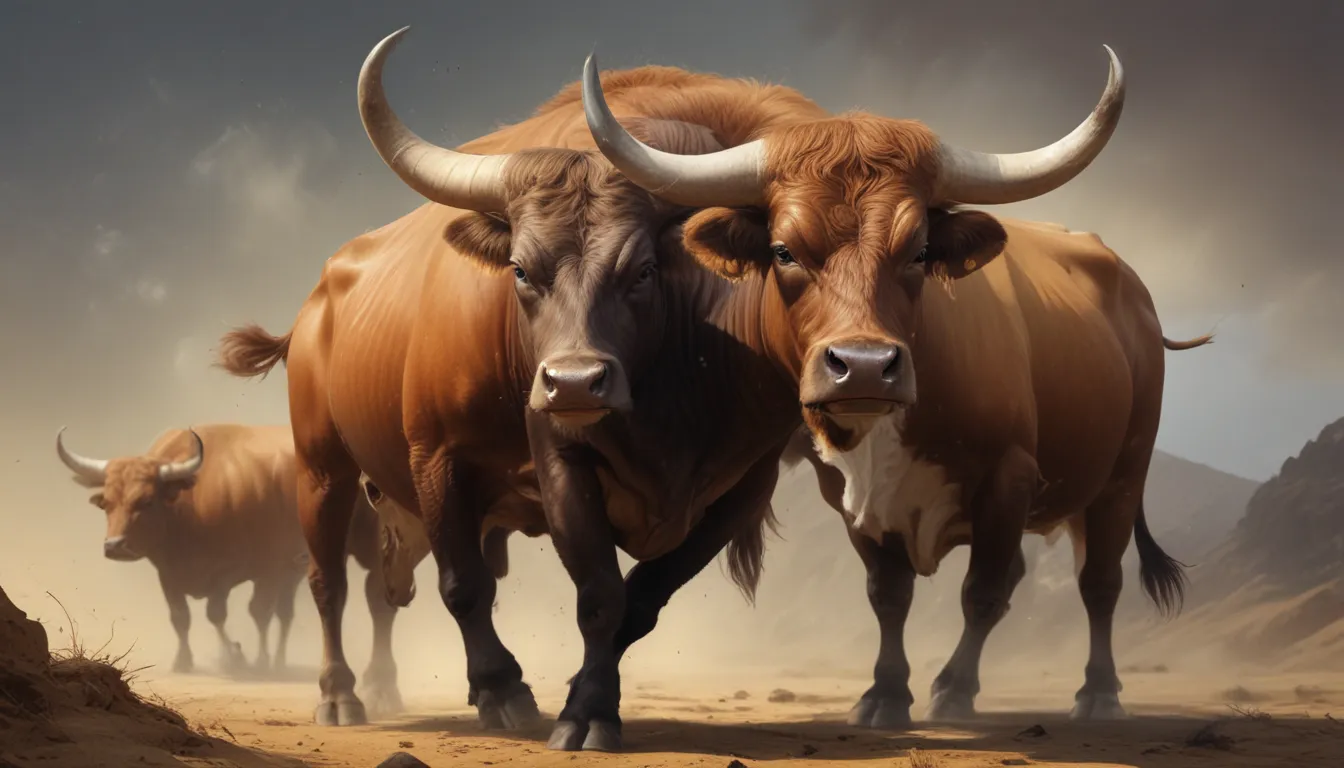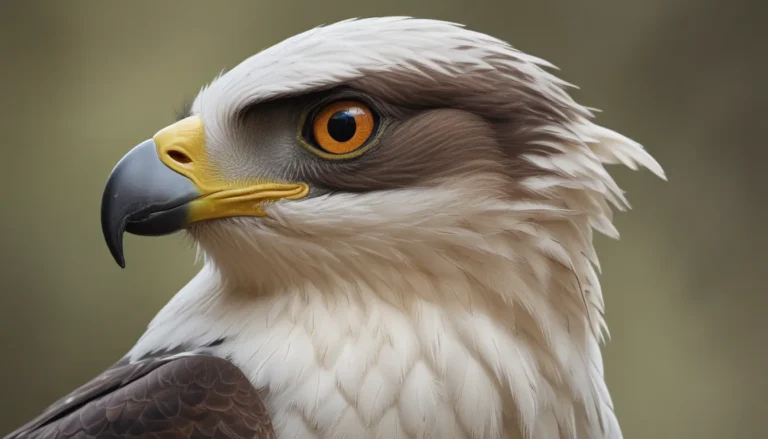The pictures we use in our articles might not show exactly what the words say. We choose these pictures to make you interested in reading more. The pictures work together with the words but don’t take their place. The words still tell you the important facts.
Bulls, majestic creatures that have captured the hearts of humans for centuries, are more than just powerful animals. With their imposing size and strength, bulls symbolize determination, resilience, and power in various cultures. Whether they are at the center of bullfighting spectacles, contributing to agriculture, or simply existing as fascinating animals, the significance of bulls in our society cannot be denied.
In this article, we will delve into 17 captivating facts about bulls that will deepen your understanding and appreciation for these incredible animals. From their physical attributes to their social behaviors and cultural symbolism, join us on an enlightening journey to uncover the wonders of bulls and gain a richer insight into their complex and captivating nature.
Key Takeaways:
- Powerful and Intelligent Beings: Bulls are not just strong; they are intelligent animals with keen senses and impressive physical strength, playing a vital role in agriculture and symbolizing strength and power in diverse cultures.
- Social and Athletic: Bulls have a hierarchical social structure, communicate using various methods, and exhibit playful behavior. Despite their imposing stature, they are incredible athletes capable of running at high speeds and performing astonishing jumps and turns.
Bulls: An Overview
Bulls Belong to the Bovine Family
Bulls are male members of the bovine family, which includes cows and oxen. Known for their muscular build and impressive horns, bulls stand as a formidable force in the animal kingdom.
Diverse Breeds of Bulls
Bulls come in various breeds, each with unique characteristics. From the aggressive Spanish Fighting Bull to the docile Scottish Highland bull, there is remarkable diversity among these magnificent creatures.
Impressive Physical Strength
With muscular bodies and a robust build, bulls are renowned for their strength, with some weighing over 2,000 pounds. This physical prowess allows them to assert dominance in their natural environments.
The Senses and Behavior of Bulls
Keen Sense of Smell
Bulls possess a remarkable sense of smell, detecting scents from great distances to locate food sources or potential threats.
Defensive Use of Horns
When provoked or feeling threatened, bulls rely on their sharp and sturdy horns as a means of defense. Their agility and powerful horns make them formidable adversaries.
Social Intelligence
Contrary to popular belief, bulls are highly intelligent animals capable of navigating their surroundings and adapting to changing circumstances.
Hierarchical Social Structure
Living within a hierarchical social structure known as a herd, bulls establish a dominant leader to ensure the safety and well-being of the group.
Communication Methods
Bulls communicate through vocalizations, body language, and scent marking, crucial for establishing dominance and maintaining social cohesion.
Exceptional Hearing Abilities
Bulls have keen hearing, picking up faint sounds in their environment to detect potential threats and communicate with herd members.
Bulls’ Longevity and Role in Agriculture
Lifespan of Bulls
On average, bulls can live for 15-20 years, depending on factors like breed, diet, and living conditions.
Agricultural Importance
Bulls play a significant role in agriculture, utilized for breeding and farm work due to their strength and endurance.
Territorial Behavior
Naturally territorial, bulls defend their territory against intruders, especially during mating season when vying for female attention.
Innate Sense of Direction
Bulls possess an innate ability to navigate long distances, finding their way back home to food, water sources, and safe resting areas.
Bulls’ Dietary Habits and Symbolism
Herbivorous Diet
Bulls primarily feed on grass and vegetation, with complex digestive systems extracting nutrients from fibrous plant materials.
Emblematic Symbols
Throughout history, bulls have symbolized strength, power, and fertility in various cultures, featuring prominently in myths, legends, and artworks.
Athleticism and Playfulness of Bulls
Playful Nature
Despite their imposing presence, bulls exhibit playful behavior, engaging in mock fights and energetic frolicking in open fields, especially during their younger years.
Athletic Abilities
Due to their robust physique and natural agility, bulls are remarkable athletes, capable of running at high speeds and executing impressive jumps and turns.
Through these 17 fascinating facts about bulls, we shed light on the majesty and uniqueness of these incredible animals. From their physical attributes to social dynamics, bulls continue to captivate and inspire awe in all who encounter them.
Conclusion
In conclusion, bulls stand as captivating creatures that have mesmerized humanity for ages. From their size and strength to their cultural significance, studying bulls provides insight into the natural world's diversity. By understanding and appreciating bulls, we emphasize the importance of wildlife conservation efforts, ensuring a sustainable future where these majestic animals thrive.
FAQs
Q: Are all bulls aggressive?
A: No, not all bulls are aggressive. While some may show territorial behaviors, many can be calm and docile with proper handling.
Q: Are bulls colorblind?
A: Yes, bulls are dichromatic, primarily seeing blue and green shades due to difficulties in distinguishing red and green hues.
Q: Do all bulls have horns?
A: No, some breeds like Angus or polled Hereford are naturally hornless.
Q: Can bulls be trained?
A: Yes, bulls can be trained using positive reinforcement techniques to learn commands and behaviors.
Q: What is the average lifespan of a bull?
A: The lifespan varies by breed, diet, and health, typically ranging from 10 to 15 years on average.
Q: Are bulls involved in bullfighting mistreated?
A: Bullfighting's treatment varies; while some argue mistreatment, others claim proper care and reverence for the animals.
Q: Can bulls swim?
A: Yes, bulls are proficient swimmers, navigating water bodies with ease.
Engage with Authentic Information
Our commitment to delivering engaging and trustworthy content ensures you access diverse insights from real contributors. Each fact undergoes rigorous editorial review to guarantee accuracy and credibility, providing you with a reliable source of fascinating and authentic information. Trust our dedication to quality as you explore and learn with us.






